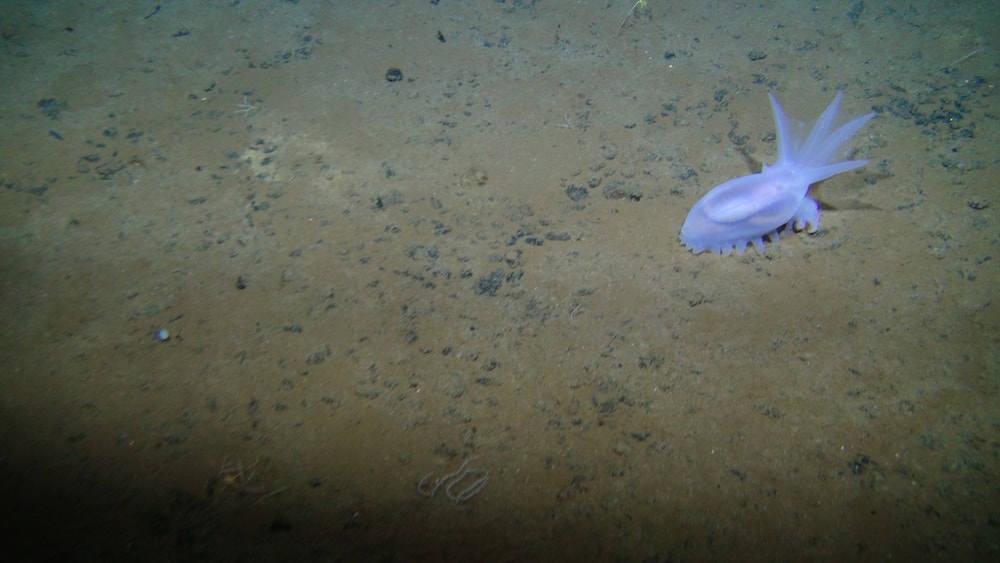The Rising Tide Against Deep Sea Mining
17:22 minutes

The ocean’s seabed is filled with minerals like copper, nickel, and cobalt—the very raw materials that tech companies use to make electronics and batteries. Some view it as fertile ground to mine and exploit, launching an underwater mining rush.
Last month, world leaders gathered in Kingston, Jamaica to hash out the future of deep sea mining. For years, the International Seabed Authority—the organization in charge of authorizing and controlling mineral operations on the seafloor—has been trying and failing to put together a set of guidelines for deep sea mining. Mining would likely start in the Clarion-Clipperton Zone, a flat stretch of the ocean floor that reaches from Hawai‘i to Mexico. Many countries, Indigenous groups, and scientists warn that opening the seabed up for business could devastate the deep sea and all the critters that live there.
Yet after a few weeks in Jamaica, the ISA adjourned without an agreement and decided it will revisit this debate next year. So if deep sea mining is given the green light, what’s at risk? And how will it affect people, like Native Hawaiians?
Ira talks with Dr. Diva Amon, marine biologist at the Benioff Ocean Science Laboratory at the University of California Santa Barbara and director of the non-profit SpeSeas, based in Trinidad and Tobago. They talk through the science of deep sea mining, the policies being debated, and what the world risks losing. Then, Ira talks with Solomon Pili Kahoʻohalahala, Chairperson of the non-profit Maui Nui Makai Network and Native Hawaiian Elder of the Papahānaumokuākea Marine National Monument Advisory Council.
Solomon Pili Kahoʻohalahala is the chairperson of the non-profit Maui Nui Makai Network and a Native Hawaiian Elder of the Papahānaumokuākea Marine National Monument Advisory Council.
Diva Amon is a marine biologist and a research fellow at the Natural History Museum of London in London, England.
The transcript of this segment is being processed. It will be available within one week after the show airs.
Rasha Aridi is a producer for Science Friday and the inaugural Outrider/Burroughs Wellcome Fund Fellow. She loves stories about weird critters, science adventures, and the intersection of science and history.
Shoshannah Buxbaum is a producer for Science Friday. She’s particularly drawn to stories about health, psychology, and the environment. She’s a proud New Jersey native and will happily share her opinions on why the state is deserving of a little more love.
Ira Flatow is the founder and host of Science Friday. His green thumb has revived many an office plant at death’s door.